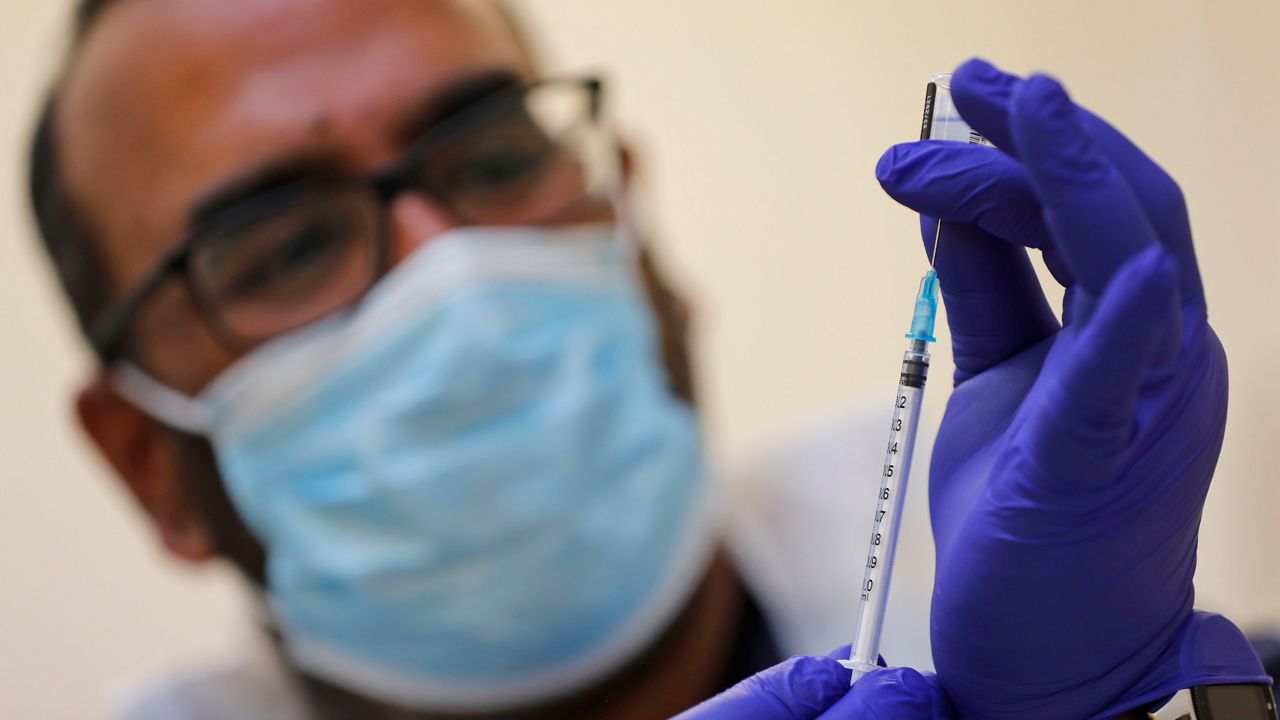LOUISVILLE, Ky. — Last Friday, Kentucky passed a milestone in its effort to defeat COVID-19, with more than 10% of the commonwealth’s population vaccinated against the illness. Notable as that was, it is still a long way away from the number required to reach herd immunity, which government scientists and medical experts have said requires vaccination of between 70% and 90% of the population.
“It will take years for us to know what the exact percentage is,” said Donna K. Arnett, Dean of the University of Kentucky College of Public Health.
Given the early stage of vaccinations and the emergence of several coronavirus mutations, Arnett would not offer a guess at the percentage of the population that must be immune before herd immunity is achieved. But she did offer an ideal.
“If we could get to 90%, it would be phenomenal,” she said.
Arnett explained that herd immunity is achieved when enough of the population is immune to COVID-19 that spread is reduced to a near halt. Imagine a person getting COVID-19, and everyone they come into contact with is immune.
“There would be no one to transmit that virus to,” Arnett said. “So the more density of vaccinated people, the less likely you get massive transmission, because sick people aren’t interacting with susceptible people.”
With roughly 450,000 Kentuckians vaccinated, and statewide population of 4.5 million, the state is still more than three million people away from hitting the 80% mark. Many factors will go into how quickly Kentucky can hit that number, including vaccine hesitancy, the approval of new vaccines, and the availability of vaccines for children.
According to the latest poll from Gallup, conducted in the last week of January, 71% of Americans are now willing to get a COVID-19 vaccine. That’s up from 65% in December and 63% in November.
One encouraging sign is that nearly a third of those unwilling to get the vaccine say they want more time to see how others are doing with it, suggesting that they could change their minds down the line.
Vaccine supply should pick up in the coming months, too. The federal government recently increased the number of doses it’s sending to states as both Pfizer and Moderna, the manufacturers of the only two approved COVID-19 vaccines, look to increase the amount of vaccine they produce.
Just this week, Gov. Andy Beshear announced that Kentucky will get an increase in the number of doses it receives, bringing the total to just over 71,600 doses.
The arrival of another new vaccine would help boost supply further, Arnett said. That could happen as soon as the end of the month, following Johnson & Johnson’s application for emergency approval last week. The firm has pledged to supply 100 million doses of its vaccine by the end of June.
Not only would that add to Kentucky’s supply, it would expand access to underserved parts of the state, Arnett said.
“One advantage of the J&J vaccine is that it doesn't require intense refrigeration,” she said. “The Moderna vaccine requires minus 80-degree freezers, which aren't available across the state. I think the J&J vaccine will be available in more places and more rural areas of Kentucky.”
Vaccinating 80% of Kentuckians would also require the approval of a vaccine for minors, who make up more than 22% of the state's population. Currently, the Pfizer vaccine is approved for those aged 16 and older and Moderna for those 18 and older. While trials on teens have begun, results are not expected until summer.
Another factor in the race toward herd immunity are the virus variants that have emerged from the U.K., South Africa and Brazil. What little we know about how the vaccine protects against these variants is not encouraging.
Arnett said there is also not enough clarity on whether those, who have been infected with and recovered from COVID-19, have long term immunity. She said it's possible that even those who have recovered could be infected by new variants.
Lastly, Kentucky is not an island, so reaching herd immunity within its borders will require high levels of vaccinations in Ohio, Indiana, Tennessee, and other neighboring states. “If we don't get surrounding states at that same level of immunity, then we run the risk of being exposed if we're not vaccinated,” Arnett said. “That's why every person should really do their best to get the vaccine when their category comes up.”



